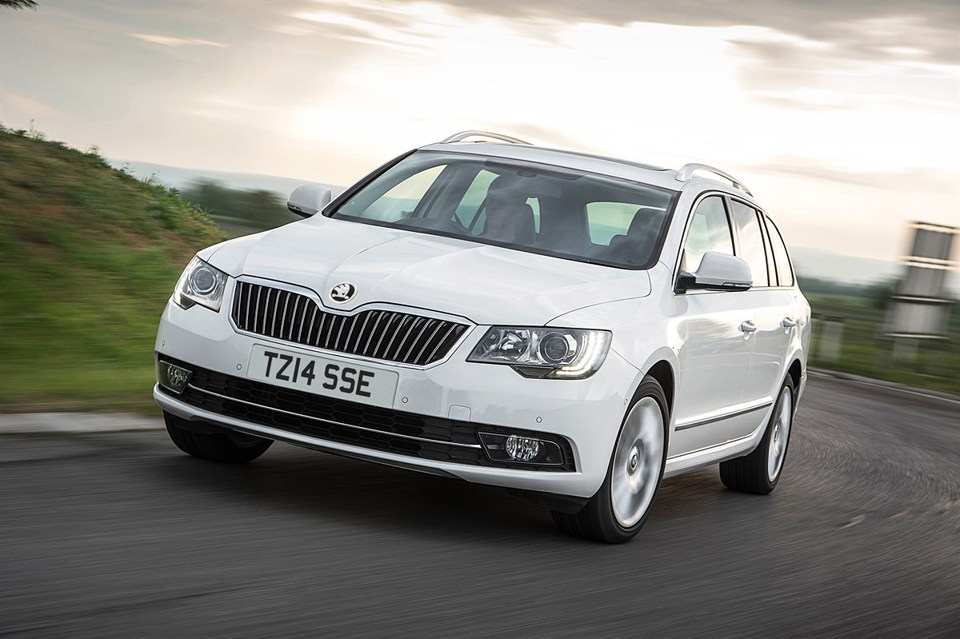Škoda has come out of top in a new survey by JD Power of car dependability in the UK.
The Vehicle Dependability Study measures problems experienced during the previous12 months by original owners of vehicles in the UK after 12-36 months of ownership. The study examines 177 problem symptoms across eight categories: engine and transmission; vehicle exterior; driving experience; features/controls/displays; audio/communication/entertainment/navigation (ACEN); seats; heating, ventilation and cooling (HVAC); and vehicle interior. Overall dependability is determined by the number of problems experienced per 100 vehicles (PP100), with a lower score reflecting higher quality.
Škoda ranks highest with a score of 77 PP100, Kia ranks second with 83 PP100, followed by Suzuki with 86 PP100; Nissan with 87 PP100; and Toyota and Mercedes-Benz in a tie with 88 PP100 each.
The overall industry average is 114 PP100. Mercedes-Benz and Volvo, which ranks sixth (93 PP100), are the only premium brands to rank above industry average.
Five of the top 11 problems in the industry are related to technology in the ACEN category. The most often reported ACEN problem is with built-in Bluetooth mobile phone/device frequent pairing/connectivity issues.
“As we’ve seen in studies in the United States and other markets, owners want in-vehicle technology, and their expectations of advanced technology capabilities are growing,” said Dr. Axel Sprenger, senior director of European automotive operations at JD Power. “When they have a problem with the technology—and the definition of dependability is increasingly influenced by usability—vehicle owners are disappointed.”
That disappointment affects owner loyalty and advocacy. The study finds that among those who report three or more problems, only 33% say they “definitely will” purchase the same brand next time, compared with 48 percent of owners who report no problems.
Mercedes-Benz has two models (E-Class and C-Class) that receive segment awards. Kia (Ceed), Suzuki (Alto), Nissan (Juke) and Honda (Jazz) each receive one award. While the Škoda nameplate does not receive any model-level awards, every Škoda model included in the study performs better than its segment average.
The most frequently reported problems are in the exterior category (19 PP100), followed by features/controls/displays (17 PP100) and interior (17 PP100).
The overall average score among premium brands is 155 PP100, which is 52 PP100 more than the volume average of 103 PP100. The problem categories with the largest gaps in dependability scores between the premium and volume vehicle segments are features/controls/displays (26 PP100 vs 15 PP100, respectively) and interior (24 PP100 vs. 15 PP100).
In addition to reporting problems experienced with their one- to three-year-old vehicles, owners also rate the severity of each problem they experience. The scale for problem severity ranges from 1 (very minor problem) to 5 (very serious problem). Seven of the 10 most severe problems are in the engine/transmission category and two are in the driving experience category. Among owners who experience most of these problems, only 60-70%, depending on the problem, take their vehicle to their dealer to service the problem.
Among owners who report an excessive fuel consumption problem, only 22 percent say they “definitely will” purchase the same brand of vehicle again, compared with 43 percent of those who do not report such a problem.
The 2015 UK VDS also measures owner satisfaction with their vehicle. Owners are asked to rate the various aspects of their vehicle, including its interior, exterior, ACEN, driving dynamics and visibility and safety, which comprise an overall vehicle satisfaction index based on a 1,000-point scale. Overall satisfaction among premium brand owners averages 765, while overall satisfaction among volume vehicle owners is 715.
Among owners of premium vehicles, satisfaction is highest with the exterior (794) and driving dynamics (784) aspects of their vehicle and lowest with fuel economy (719) and storage and space (739). Among owners of volume vehicles, satisfaction is highest with the exterior (735) and visibility and safety (731) aspects and lowest with their vehicle’s ACEN system (690).
The 2015 UK Vehicle Dependability Study is based on 13,451 respondents who purchased their vehicle between April 2012 and March 2014. The study was fielded between March and May 2015. The UK VDS, along with the J.D. Power 2015 UK Customer Service Index (CSI) Study, scheduled to release on August 12, replace the J.D. Power UK Vehicle Ownership Satisfaction Study (VOSS), providing deeper and more detailed insights into vehicle dependability and after-sales solutions for automakers, suppliers and dealerships.















Login to comment
Comments
No comments have been made yet.